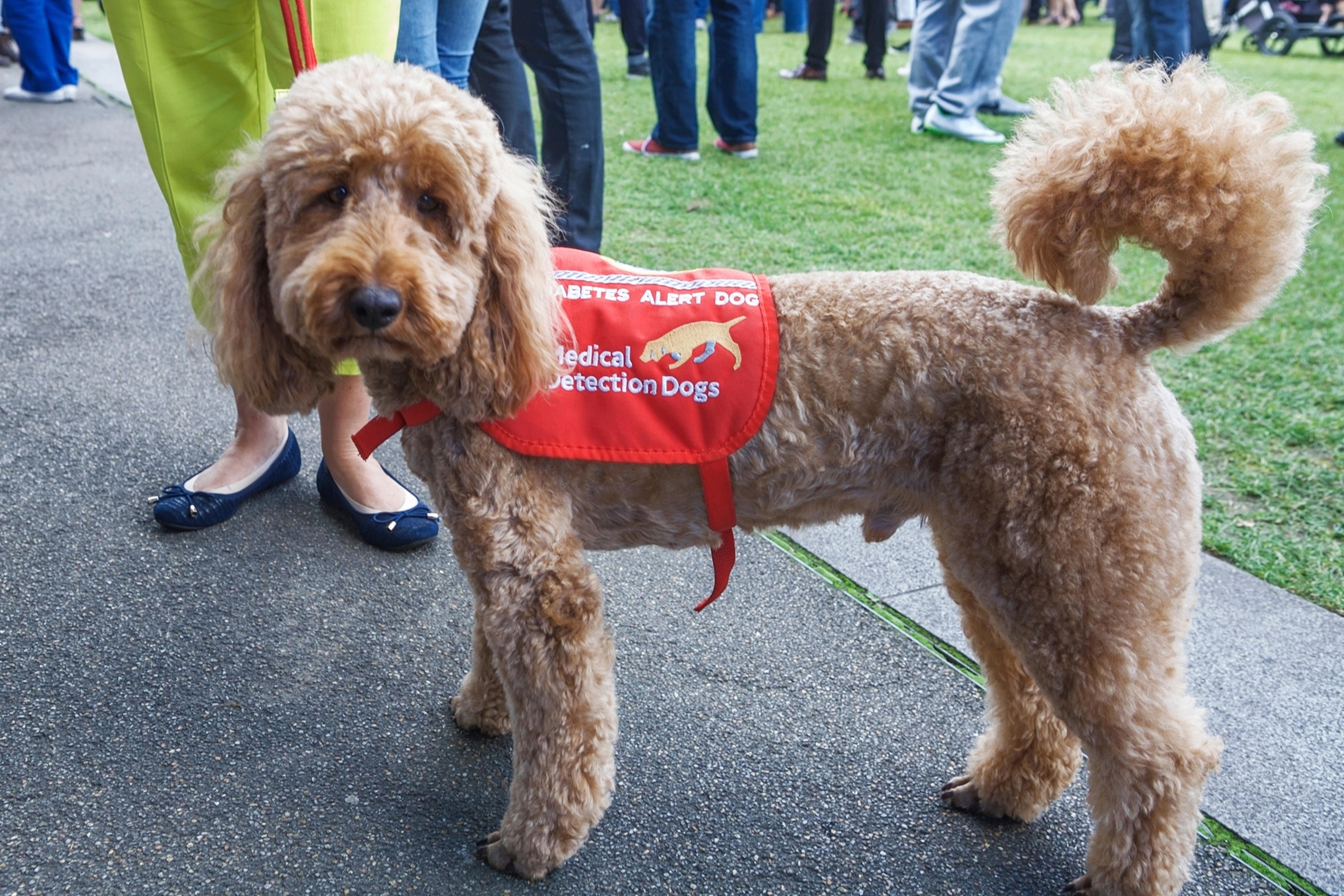
How Dogs Can Sniff Out Diabetes and Cancer
Our pet canines can be trained to detect diseases in people—and they're amazingly good at it.
The Force is strong in Jedi.
The black Labrador retriever recently detected a drop in blood sugar in 7-year-old Luke Nuttall, who has Type 1 diabetes. His glucose monitor didn't pick it up, but Jedi did—and woke up Luke's mother, Dorrie Nuttall, as he was trained.
The California family's amazing story, which went viral on Facebook, made NatGeo's own Nicole Werbeck wonder, “How do dogs use their noses to detect human disease?”
Weird Animal Question of the Week sniffed out some answers.
Nose Pros
Dog schnozzes are incredibly sensitive and quite complicated, which makes them excellent at smelling bombs, drugs, and even animal poop, which can help with conservation. (Read about a Chesapeake Bay retriever that sniffs out scat of disappearing South American animals.)
And numerous studies have shown man's best friend can detect various cancers, including prostate cancer, colorectal cancer and melanoma.
Exactly what they are smelling—in other words what cancer and diabetes smell like—is not yet known, says Cindy Otto, founder and director of the University of Pennsylvania’s Penn Vet Working Dog Center.
But there's evidence that diabetic alert dogs, or DADs, smell a volatile chemical compound released throughout the bodies of diabetics. Chemists have not yet singled out the exact compound.
Since these helper dogs work with people, they get service-dog training on top of their medical-detection training—kind of like special agents.

During training, diabetic alert dogs are rewarded whenever they sniff the scent of low blood sugar, provided by patient saliva samples. That way they’ll focus on that scent to the exclusion of the many other scents they’ll pick up on the job. (Related: "Detection Dogs: Learning to Pass the Sniff Test.")
Other Penn Vet dogs, who are trained to detect ovarian cancer, work only with blood samples in a lab environment. (See: "Dogs Smell Cancer in Patient’s Breath.")
Omidog!
When she was in grad school studying cancer detection, Maureen Maurer of Asisstance Dogs of Hawaii thought the dogs that already serve the disabled could be trained to do double duty as infection-alert dogs.
Many of Maurer’s clients have spinal cord injuries and can’t feel the pain that alerts most people to urinary tracts infections, which can turn life threatening if untreated.
Maurer co-authored a recent study that showed dogs can detect bacteria in urine samples with nearly 100 percent accuracy, even in samples diluted to 0.1 percent. (Related "The Healing Power of Dogs.")
One dog even alerted a visitor that she had a urinary tract infection, which a test confirmed.
A second study conducted in hospitals, in which dogs were asked to detect bacteria in urine samples, is showing “promising results,” Maurer says.
Man's Best Helper
Stories like Luke and Jedi’s often increase interest in medical-alert dogs, and Otto recommends checking with Diabetes Alert Dog Alliance or Assistance Dogs International for reliable help in finding one.
She certainly understands, medically and emotionally, why they’re in demand.
“Right now my dog is sitting in my lap,” she says, and if she herself was in need of a DAD, “I’d like that much better than a glucose monitor.”
Weird Animal Question of the Week answers your questions every Saturday. If you have a question about the weird and wild animal world, tweet me, leave me a note or photo in the comments below, or find me on Facebook.